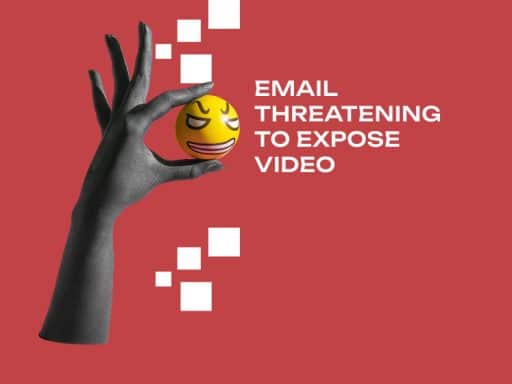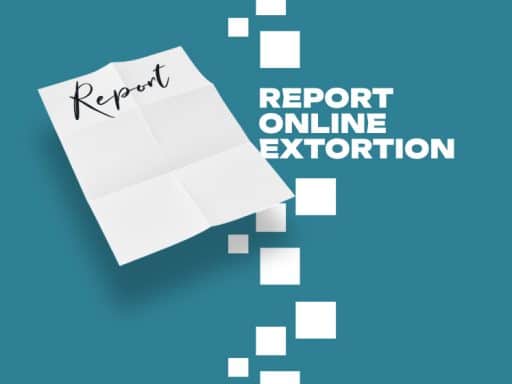Someone is threatening to share your nudes without your consent. Panic sets in. Your worst fears feel like they’re about to become reality. What can you do?
First, take a deep breath. Remember, this is not the end of the world — and you don’t have to face it alone. At Digital Forensics Corp., we specialize in helping individuals navigate exactly these kinds of digital threats. Our expert team can work quickly to trace the source, assist with legal action, and — in many cases — prevent the unauthorized leaking of your content. You’re not powerless, and we’re here to help you fight back.
Someone is Threatening to Share My Nudes. What Should I Do?
If someone is threatening to leak your nudes, acting quickly is critical. What you do in the first few days can significantly affect whether the content is actually shared and how effectively you can respond.
Start by reporting the threat to the platform where it occurred. Take screenshots of the messages, including the threats and the profile of the person behind them. You don’t need to keep the intimate images themselves — just focus on preserving evidence of the communication. Most platforms take these reports seriously and can suspend or ban the offender’s account during the investigation.
Next, report the threat to law enforcement. Contact your local police and file a report with the FBI’s Internet Crime Complaint Center (IC3). Include as many details as possible, along with the screenshots you’ve gathered. This creates an official paper trail for the court that could help in holding the perpetrator accountable and stop any further abuse.
Get professional help from Digital Forensics Corp. If you’re unsure who’s threatening to release your intimate images, we can use advanced location-tracing techniques to identify and locate the scammer. This information can be crucial in pressuring the criminals to abandon their scheme.
Additionally, we can collect and preserve evidence that may be vital for prosecution, helping ensure that the offender faces legal consequences for their actions.
Legal Ramifications of Non-Consensual Intimate Image Abuse
An important step in fighting back is understanding the legal ramifications of someone sharing your nudes without your consent.
Passed by Congress in April and awaiting President Trump’s signature, the TAKE IT DOWN Act marks a major step forward in protecting individuals being threatened with leaked nudes, including AI-generated deepfakes.
The Act makes it a federal crime to knowingly publish or threaten to publish nonconsensual intimate images (NCII). It also mandates that websites and social media platforms remove such content within 48 hours of being notified by the victim. To comply, platforms must maintain a clear and accessible process for reporting NCII content and ensure prompt removal of any reposted or duplicate material.
The law also applies to situations where the images were taken with your consent but shared or distributed without it. Beyond takedown obligations, the legislation criminalizes the creation and distribution of NCII. Offenders may face fines or imprisonment. If signed into law as expected, the Act’s takedown requirements for covered platforms will take effect one year after enactment.
Civil Lawsuits and NCII Abuse
If someone follows through on their threats to share your nudes, you can sue under federal law.
Under the Violence Against Women Reauthorization Act, victims of NCII abuse have the legal right to file civil lawsuits against individuals who shared their intimate images without permission. Victims can seek up to $150,000 in damages, along with compensation for attorney fees and court costs.
To bring a case in federal court, you can hire an attorney or choose to represent yourself. The law also allows you to request to file the lawsuit anonymously, helping protect your identity and maintain your privacy throughout the legal process.
Types of NCII Abuse and Threats
NCII abuse can take many forms, from private photos shared without permission to AI-generated deepfakes. The most effective way to respond depends on the nature of the threat.
Below are some of the most common types of NCII abuse:
- Revenge porn threat: The non-consensual sharing of intimate images or videos, often by a former partner, with the intent to embarrass, harm, or exploit the person depicted.
- Sexploitation threat: The act of coercing someone into providing additional intimate content or sexual favors, typically by threatening to publicize what has already been shared. It’s a form of manipulation aimed at extracting more personal material through fear and control.
- Deepfake threat: The non-consensual creation or sharing of digitally manipulated intimate images or videos, often using AI to superimpose someone’s face or body, with the intent to humiliate, exploit, or harm the person depicted.
- Sextortion threat: A form of extortion that involves the use of intimate content, where the perpetrator threatens to release the material unless a ransom is paid.
The first step in taking action is identifying who is threatening to share your nudes and where they are located.
If the individual is based in another country, you may encounter jurisdictional challenges when pursuing legal action. This is especially common in sextortion cases, where many perpetrators operate from countries like Nigeria, Thailand, and the Philippines. While prosecution in these regions can be difficult, it’s often still worth pursuing. In such cases, simply revealing the scammer’s identity can be powerful leverage to pressure them into dropping the scheme entirely.
On the other hand, most cases of revenge porn and sexploitation involve someone the victim knows personally, such as a former partner or acquaintance. This often allows local law enforcement and prosecutors to intervene, increasing the chances of a successful legal response.
Facing Sextortion? Act Quickly to Protect Yourself
If someone is threatening to leak your nudes in a sextortion attempt, time is critical. Taking the right steps early can make all the difference in stopping the harassment. Here’s what you should and shouldn’t do:
Don’t Pay the Criminal
Paying rarely ends the threat. Instead, it often encourages further demands and ongoing harassment.
Don’t Block the Scammer
Blocking might seem like the fastest way to stop the messages, but it can backfire. Some scammers will retaliate by leaking your content when they can no longer contact you.
Stop Engaging
Any communication, even to argue or plead, can escalate the situation and fuel continued threats.
Do Get Professional Help
Reach out to experts like Digital Forensics Corp. We can help identify the scammer, gather evidence, and guide you through legal and technical steps to protect your privacy and stop the abuse.
Contact Digital Forensics Corp. Today
If someone is threatening to leak your nudes, Digital Forensics Corp. is here to help you take back control.
Our team uses advanced tracking and geolocation tools to uncover the identity and location of the person targeting you. We gather key information to pierce their anonymity by analyzing their digital footprint. This is a critical step, as revealing the criminal’s identity often reduces their power and influence, making them more likely to back down.
Once we’ve identified the individual, we act as intermediaries on your behalf. Our professionals will engage directly with the attacker, demanding verifiable proof that all intimate images, videos, or other incriminating content have been permanently deleted.
If your content has already been leaked, we move quickly to monitor and track where it appears online, contacting platform administrators to have it taken down. We also implement ongoing surveillance tools to prevent the material from resurfacing.
Don’t face this alone. Let us help you fight back, protect your privacy, and reclaim your peace of mind. Contact Digital Forensics Corp. today for a confidential consultation.






